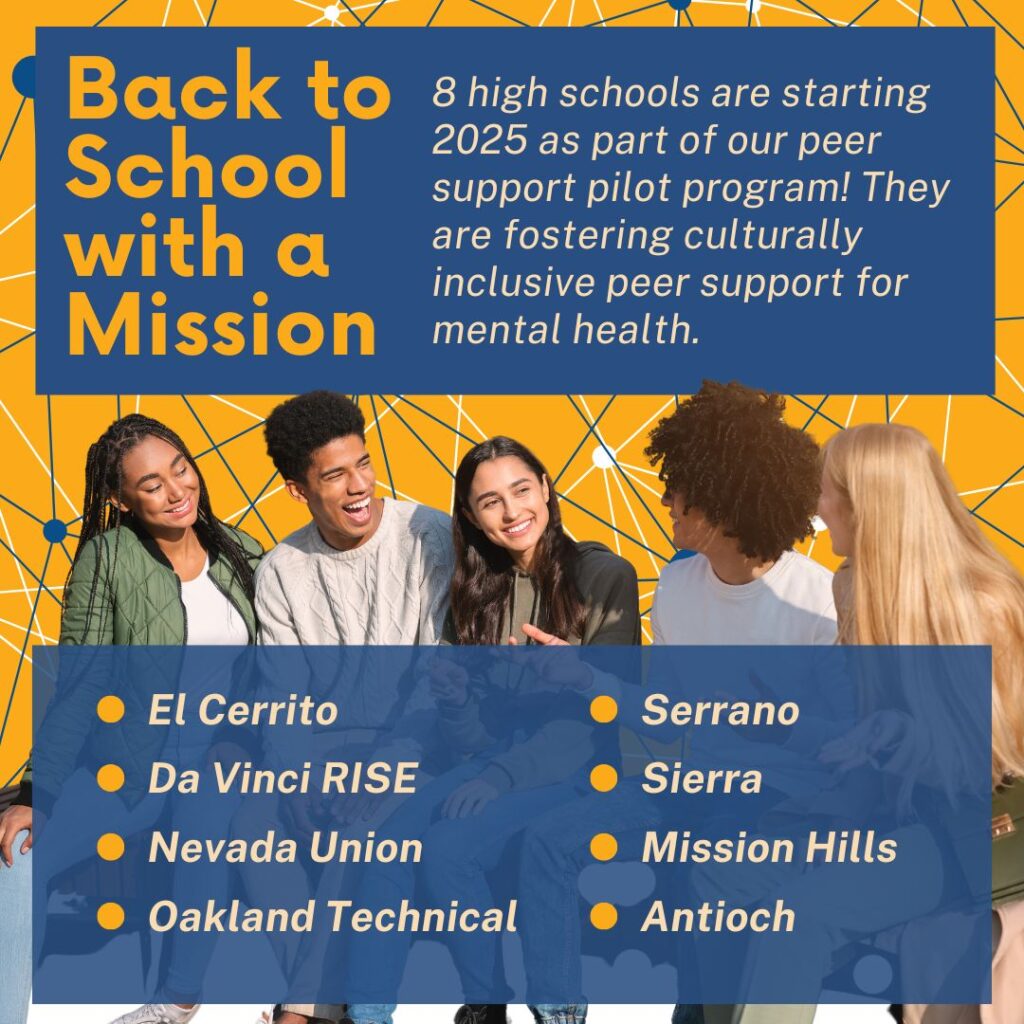They Got This! Peer Support for Youth Mental Health

Raven Jones-McKinney, our director of peer-to-peer youth mental health at The Children’s Partnership, is leading a groundbreaking youth mental health pilot in 2025.
I grew up in a small town 45 minutes east of Los Angeles. On the outside, I was considered a normal, if not exceptional, kid who no one really had to worry about. I was editor-in-chief of my high school newspaper, an honor student, active in student government and surrounded by a solid group of friends.
I was also struggling in ways no one knew about. I spent the majority of my teen years managing severe anxiety, disordered eating, and carrying what I felt like at the time was a huge secret.
Friends would make comments like, “I feel like there’s just part of you that you’re holding back,” or “you’re just really secretive.” At the time, I shrugged them off. I created a web of excuses and lies to try and protect myself. But they were right. I was hiding big parts of myself, parts that felt too vulnerable to share.
As an adult looking back, I realize that while I felt isolated, I wasn’t truly alone. So many of my classmates, my peers, were fighting their own battles, too. We were all just doing the best we could. We were moving through a world that often didn’t make space for vulnerability. It was a world that stigmatized mental health.
In fact, as I reflect on the power of peer support, I’ve come to realize that it was the peer and near-peer relationships in high school that made the difference. My friends and mentors got me through my most difficult seasons as a young person.
As an advocate who has spent over a decade in youth development and K-12 education, working directly with young people and systems, I know first-hand that youth are often more equipped, due to their shared experiences and social competency, to provide a first level of support to their peers.
February is Youth Leadership Month. Young people continue to be at the forefront of driving solutions for the challenges they face with their mental health. In California, youth are leading the effort to bring culturally competent support to their classmates as peer specialists, peer counselors and peer mentors.
Peer Support is care provided by someone who has similar or shared lived experiences. Peer support is given through structured activities. It is designed to set and make progress toward mental and behavioral health goals.
Youth peers use their shared lived experiences to build trust and break down stigmas. Peers are and can be a bridge to help individuals receive additional behavioral or clinical care.
We at The Children’s Partnership are fortunate to have a front-row seat to the power of peer support as stewards of the California Peer-to-Peer Youth Mental Health High School Pilot Demonstration. This is a three-year pilot that provides eight high schools across California with one-time funding to invest in building and sustaining peer support programs on their campuses. The pilot launched in August, 2024, and will go through the 2026-27 school year.

From San Diego to Grass Valley, young people are trained to provide tier I mental health prevention and support to their peers, under the supervision of a certified adult. Additionally, youth peer supporters from all eight high schools engage with each other through a shared learning community throughout the three years.
With young people dealing with mental health risks such as adverse childhood experiences, neighborhood safety, isolation and lack of access to quality and culturally appropriate mental health providers, peer support is a proven prevention method.
Here’s what young people have to say about the impact of peer support in their schools and communities since the launch of the pilot:
[Peers are very important] to have on campus. It helps build community, support students/staff and teaches students how to handle difficult situations. I would say that peers have made an impact in my life. It has taught me how to communicate with others and how to handle my emotions in a healthy way.
Student from Antioch High School, Antioch, California
I love being able to help people with their problems so that they feel like they’re not alone. At one point I felt alone when I got to Serrano and I am so glad that I get to make a difference for others as a Peer Leader.
Student Peer Leader at Serrano High School, Phelan, California
As adults and mental health advocates, it’s our responsibility to empower our youth to become strong peer supporters and the next wave of mental health advocates. We must continue to fight for them to not only have access to training and certification, but the resources and recognition within our health care infrastructure to succeed in this work.
Related Content:
- Learn more about what young people are recommending to address the youth mental health crisis in our Hope, Health and Healing Collective Brief.
- For more information on the California Peer-to-Peer Youth Mental Health Pilot Demonstration visit our webpage.
